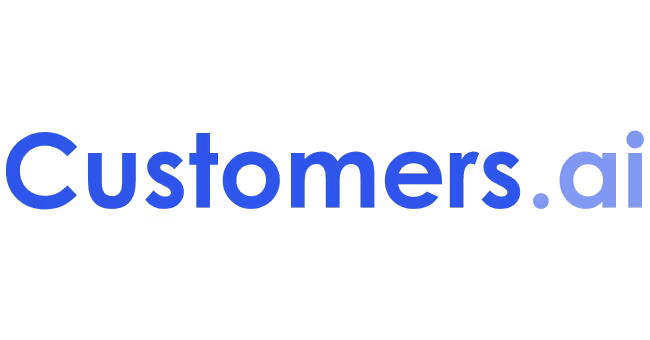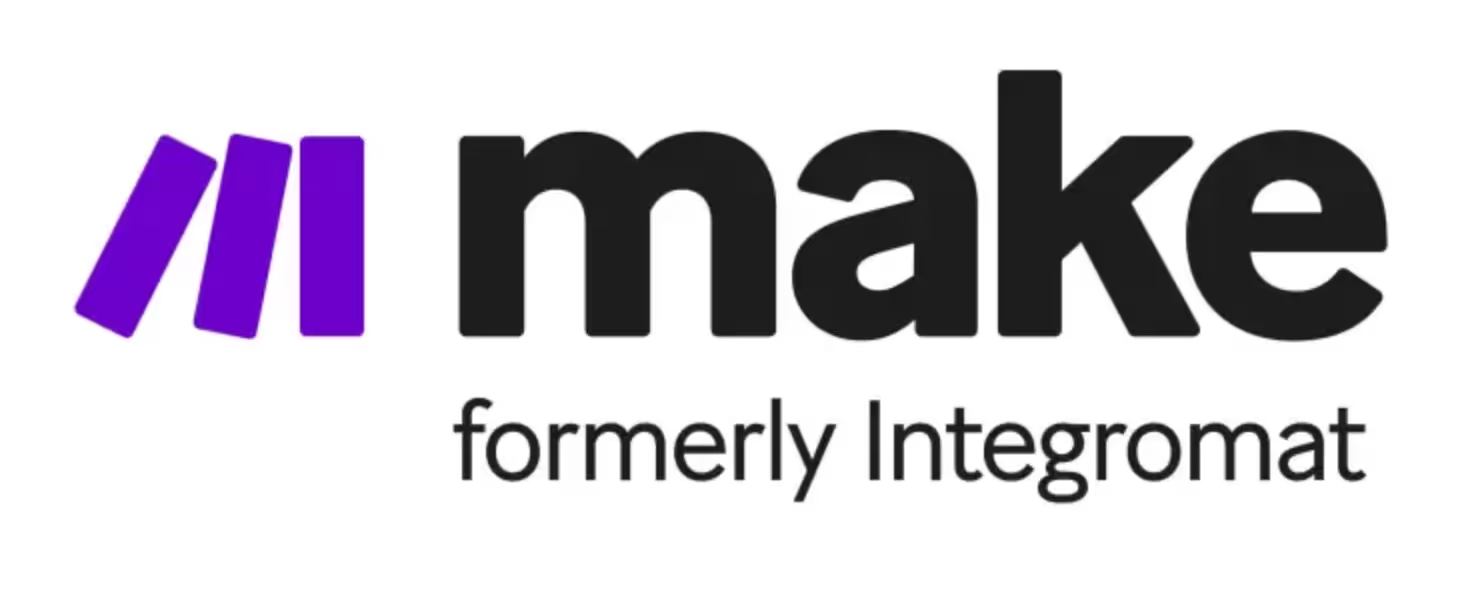Leveraging AI for Small Business Marketing: Practical Tips and Examples
Discover how artificial intelligence can transform small business marketing, from automating tasks to enhancing customer engagement.
Artificial intelligence, or AI, is changing how small businesses do marketing. It's not just for big companies anymore. AI tools can help with many tasks, making things easier and often better. This article will show you how artificial intelligence can help your business grow, from getting more customers to understanding what they want. It's about using smart tools to get real results.
Key Takeaways
- Artificial intelligence can automate many marketing tasks, saving time and effort.
- AI helps improve customer engagement through personalized interactions.
- Using artificial intelligence provides better insights into market trends and customer behavior.
- Artificial intelligence tools can make sales processes more efficient.
- Adopting artificial intelligence means adapting business roles and strategies for future growth.
Automating Marketing Efforts with Artificial Intelligence
Okay, so you're a small business owner, and you're probably wearing a million different hats. Marketing can feel like just one more thing on your already overflowing plate. But what if I told you that AI could take some of that weight off your shoulders? It's not about replacing you, it's about making you more efficient. Think of it as your new, super-powered marketing assistant.
Streamlining Social Media Management with AI
Social media. We all love to hate it, right? It's a necessary evil for businesses these days, but keeping up with all the platforms, posting consistently, and actually engaging with your audience can be a real time-suck. That's where AI comes in. AI-powered tools can schedule posts, suggest content ideas, and even analyze engagement metrics to see what's working and what's not. It's like having a social media guru on call 24/7. For example, you can use AI to schedule posts during peak engagement times, ensuring your content reaches the widest possible audience.

Sendible is a social media management tool that helps businesses streamline their online presence. It's a great tool for managing your social media presence. It allows you to schedule posts, analyze your performance, and collaborate with your team, all in one place.
Crafting Engaging Video Content Using Artificial Intelligence
Video is king, they say. But creating videos can be expensive and time-consuming. AI can help with that too! There are AI tools that can generate scripts, create animations, and even edit videos for you. You can use AI to create short, engaging videos for social media, product demos, or even explainer videos for your website. It's all about making video creation more accessible and affordable for small businesses.

Descript is a powerful AI-powered video editing tool that can help you create professional-quality videos quickly and easily. It offers features like automatic transcription, AI-powered editing, and even a text-to-speech generator. It's like having a full production studio at your fingertips.
Optimizing Email Campaigns with AI-Powered Tools
Email marketing is still alive and kicking, but it's also getting harder to stand out in people's inboxes. AI can help you write better subject lines, personalize your messages, and even segment your audience for more targeted campaigns. Personalization is key here. AI can analyze customer data to send the right message to the right person at the right time, which can significantly improve your open and click-through rates.

ActiveCampaign is a popular email marketing platform that uses AI to help businesses automate and optimize their email campaigns. It offers features like email automation, CRM, and sales automation, all powered by AI to help businesses grow.
AI isn't a magic bullet, but it can be a powerful tool for automating and optimizing your marketing efforts. It's about finding the right tools and strategies that work for your business and your budget.
Enhancing Customer Engagement Through Artificial Intelligence
Okay, so you're thinking about using AI to get your customers more involved, right? It's not just about blasting out more ads. It's about making them feel like you actually get them. Here's how AI can help you do that.
Implementing AI Chatbots for Real-Time Website Interaction
Chatbots are like having a 24/7 customer service rep, but without the coffee breaks. They can answer questions instantly, guide users through your website, and even collect leads. I remember when I first put a chatbot on my site. I was worried it would feel impersonal, but it actually freed me up to handle the trickier stuff. Plus, people seem to like getting answers right away. It's all about that instant gratification, you know?
- Answer frequently asked questions
- Provide instant support
- Gather customer information

Tidio is a great example of a tool that combines live chat, chatbots, and email marketing to help businesses engage with their customers. It's a great tool for businesses looking to improve their customer engagement and support.
Personalizing Customer Journeys with Artificial Intelligence
Ever get an email that feels like it was written just for you? That's personalization, and AI can make it happen at scale. By analyzing customer data, AI can help you tailor your website content, email campaigns, and even product recommendations. It's like having a personal shopper for every single customer. You can use AI to create targeted email campaigns that are more likely to convert into sales.
- Tailor website content
- Personalize email marketing
- Recommend relevant products
Leveraging AI for Proactive Customer Support
Imagine knowing what your customers need before they even ask. That's the power of proactive support. AI can analyze customer behavior and identify potential issues, allowing you to reach out with solutions before they even become problems. It's like being a mind reader, but with data. This can be a game changer for customer satisfaction. Proactive support shows customers you care and can significantly boost loyalty.
I once had a customer who was about to cancel their subscription because they were having trouble with a certain feature. Our AI flagged their account, and we reached out with a helpful guide. They ended up staying, and they're now one of our biggest fans. It's all about anticipating needs and providing solutions before things go south.
- Identify potential issues
- Offer preemptive solutions
- Improve customer satisfaction
Advanced Artificial Intelligence for Market Insights

AI isn't just about automating simple tasks anymore. It's moving into areas that can give businesses a real edge in understanding their market. We're talking about using AI to dig deep, find patterns, and make predictions that were impossible just a few years ago. It's about getting smarter about your customers and your competition.
Developing AI-Driven Customer Avatars for Targeted Marketing
Forget generic customer profiles. AI can build detailed customer avatars that go way beyond basic demographics. These avatars are based on actual data, giving you a much clearer picture of who your ideal customer really is. This means better targeting, more effective ad campaigns, and a higher return on your marketing investment.
Here's what an AI-driven avatar can include:
- Detailed purchase history
- Social media activity analysis
- Predictive behavior patterns
Utilizing Artificial Intelligence for Competitor Analysis
Keeping an eye on the competition is crucial, but it can be time-consuming. AI can automate this process, tracking competitor activity across multiple channels. It can identify their strengths and weaknesses, their marketing strategies, and even predict their next moves. This gives you a significant advantage in the marketplace.
By using AI to analyze competitor data, you can identify opportunities to differentiate your business and gain a competitive edge. It's like having a spy on the inside, but without the ethical concerns.
Predictive Analytics with Artificial Intelligence for Market Trends
Knowing what's going to be popular next is like having a crystal ball. AI can use predictive analytics to forecast market trends, identify emerging opportunities, and anticipate changes in customer behavior. This allows you to stay ahead of the curve and make informed decisions about product development, marketing, and overall business strategy. Predictive analytics can help you make smarter decisions.
Here's a simple example of how predictive analytics might work:
Transforming Sales Processes with Artificial Intelligence

AI is changing how sales teams operate, and it's happening fast. It's not just about replacing people; it's about making sales smarter and more efficient. AI can handle many of the time-consuming tasks that salespeople used to do, freeing them up to focus on building relationships and closing deals.
AI-Powered Lead Qualification and Nurturing
Imagine a world where you only talk to leads who are actually interested in what you're selling. That's the promise of AI-powered lead qualification. AI can analyze data from various sources – website visits, social media activity, email engagement – to score leads based on their likelihood to convert. This means sales teams can prioritize their efforts and focus on the most promising prospects. Plus, AI can automate the nurturing process, sending personalized emails and content to keep leads engaged until they're ready to buy.

Customers AI can help businesses automate lead qualification and nurturing, freeing up sales teams to focus on building relationships and closing deals. It's like having a personal assistant for your sales team. This allows them to focus on building relationships and closing deals.
Automating Sales Workflows with Artificial Intelligence
Sales workflows often involve a lot of repetitive tasks: data entry, scheduling meetings, sending follow-up emails. AI can automate many of these tasks, saving salespeople time and reducing the risk of errors. For example, AI-powered tools can automatically update CRM records, schedule meetings based on everyone's availability, and send personalized follow-up emails based on the prospect's behavior. This automation not only saves time but also ensures that no lead falls through the cracks.

Make.com is a powerful automation platform that can connect different apps and services, allowing you to automate sales workflows. It's like a digital glue that holds your business processes together. For example, you could use Make.com to automatically add new leads from a form to your CRM, send a personalized welcome email, and even schedule a follow-up task for your sales team. This kind of automation can save a tremendous amount of time and reduce manual errors.
Improving Sales Efficiency Through AI Integration
AI can significantly improve sales efficiency by providing salespeople with the information they need, when they need it. AI-powered tools can analyze customer data to provide insights into their needs and preferences, helping salespeople tailor their pitches and build stronger relationships. AI can also automate tasks like call preparation, CRM enrichment, and objection handling, freeing up salespeople to focus on what they do best: connecting with customers and closing deals.
AI isn't about replacing salespeople; it's about augmenting their abilities and making them more effective. By automating repetitive tasks and providing valuable insights, AI can help sales teams close more deals and drive revenue growth.
The Evolution of Business Roles with Artificial Intelligence
AI is changing how businesses operate, and that includes the roles people play. It's not just about replacing jobs; it's about redefining them. We're seeing a shift in what's expected of employees and leaders alike. It's a pretty big deal, and it's happening fast. The arrival of truly intelligent, always-on, AI-native revenue engines is dismantling the way we’ve structured go-to-market motions for 20 years.
Adapting to AI-Native Leadership in Business
The leaders who get AI will be the ones who succeed. It's not enough to just know AI exists; leaders need to understand how to use it strategically. This means rethinking workflows, automating tasks, and hiring people who are adaptable and comfortable working alongside AI. In every exec hiring process I run now, I ask: How are you using AI today? What have you automated in your function? What would break if we turned your tools off?
Redefining Sales Roles with Artificial Intelligence
Sales isn't dying, but it is changing. A lot of what salespeople used to do – like cold calling and lead qualification – can now be done more efficiently by AI. This frees up salespeople to focus on building relationships and closing deals. It's about moving from being a script reader to a strategic advisor. In my experience, 70–80% of inbound lead handling today can be automated better than it’s currently handled by human teams. In some orgs, it’s already happening.
Integrating AI Across Sales, Support, and Success Functions
Customers don't care who they talk to; they just want answers. AI can help break down the silos between sales, support, and success teams. Imagine an AI system that can route leads, answer technical questions, process renewals, and flag upsell opportunities – all in one place. It's about creating a seamless experience for the customer. Traditional org charts are breaking down. Customers don’t care whether they’re routed to sales, success, or support, they just want clarity, fast.
AI is not the death of sales. It’s the rebirth of what great sales always should have been, instant, accurate, helpful, and available when the buyer is ready, not when the rep finally checks their inbox.
Strategic Implementation of Artificial Intelligence in Business
Okay, so you're thinking about really getting AI into your business. Not just playing around with a chatbot, but actually making it part of how you do things. That's cool, but it needs a plan. You can't just throw money at AI and hope it works. Let's break down how to do it right.
Building an AI-Centric Business Strategy
First, you gotta figure out what you want AI to do for you. What problems are you trying to fix? Where are things slow or costing too much? Don't just chase the shiny new thing; focus on real business needs. Think about how AI can change your processes, not just automate the old ones. Maybe it's about getting way better at knowing what customers want before they even ask. Or maybe it's about making your sales team way more efficient. Whatever it is, write it down. This is your roadmap.
Measuring Return on Investment for Artificial Intelligence Initiatives
Alright, you've got your AI doing stuff. Now, how do you know if it's worth it? You need to track things. Are you making more money? Are customers happier? Is stuff getting done faster? If you can't measure it, you can't improve it. Here's a simple table to get you started:
Make sure you're looking at the right numbers. It's not just about saving a few bucks here and there; it's about the big picture.
Overcoming Challenges in AI Adoption for Small Businesses
Okay, so AI isn't always easy. You're gonna hit some bumps. Maybe your team doesn't know how to use the new tools. Maybe the AI isn't working like you thought it would. Don't give up! Here's a few things to keep in mind:
- Training is key: Make sure your people know how to use the AI. Seriously. Offer workshops, online courses, whatever it takes.
- Start small: Don't try to do everything at once. Pick one or two things to focus on first.
- Get help: There are people who know this stuff. Don't be afraid to ask for help from consultants or other businesses that have done it before.
It's important to remember that AI is a tool, not a magic bullet. It takes time, effort, and a willingness to learn to make it work for your business. Don't expect overnight success, but with the right approach, you can see some pretty amazing results.
Future-Proofing Your Business with Artificial Intelligence
Okay, so you've started using AI in your small business. Great! But the thing about AI is that it's not a one-and-done deal. It's constantly changing, and what works today might be old news tomorrow. That's why future-proofing your business with AI is super important. It's about making sure you're not just using AI now, but that you're ready for whatever comes next. Think of it like this: you wouldn't buy a computer in 2025 and expect it to run the latest software in 2035 without any upgrades, right? Same goes for AI.
Staying Ahead with Emerging Artificial Intelligence Technologies
Keeping up with the latest AI stuff can feel like drinking from a firehose. New models, new tools, new applications – it's a lot! But you don't have to master everything. Focus on the trends that matter most to your business. For example, if you're in customer service, keep an eye on advancements in AI-powered chatbots and natural language processing. Read industry blogs, attend webinars, and follow AI experts on social media. Experiment with new tools on a small scale to see if they can actually help your business. Don't be afraid to try things out, but also don't jump on every bandwagon that comes along.
Continuous Learning and Adaptation in the Age of AI
It's not just about knowing what the new AI tools are; it's about learning how to use them effectively and adapting your business processes accordingly. This means investing in training for your employees. They need to understand how AI works, how to use the tools, and how to work alongside AI systems. It also means being willing to change the way you do things. Maybe you need to rethink your marketing strategy, your sales process, or even your organizational structure. The key is to be flexible and adaptable.
Here are some ways to promote continuous learning:
- Offer workshops and training sessions on AI tools and concepts.
- Encourage employees to experiment with AI in their daily tasks.
- Create a culture of sharing knowledge and best practices.
Ethical Considerations in Deploying Artificial Intelligence
AI can do some amazing things, but it's not without its risks. There are ethical considerations to think about, like bias, privacy, and transparency. You need to make sure that your AI systems are fair, unbiased, and respect people's privacy. Be transparent about how you're using AI and what data you're collecting. And be prepared to explain your AI's decisions if necessary. Ignoring these ethical considerations can damage your reputation and erode customer trust.
It's important to remember that AI is a tool, and like any tool, it can be used for good or for bad. It's up to us to make sure that we're using AI responsibly and ethically. This means thinking about the potential consequences of our AI systems and taking steps to mitigate those risks.
Wrapping It Up
So, there you have it. AI isn't just for the big guys anymore; it's a real game-changer for small businesses too. From making your social media posts happen on their own to sending out emails that actually get noticed, these tools can really help you out. It's all about making things easier and getting better results without needing a huge team or a massive budget. Give some of these AI tools a try, and you might just be surprised at how much they can help your business grow.
Frequently Asked Questions
How can AI really help my small business with marketing?
AI helps small businesses by making marketing easier and more effective. It can handle repetitive tasks like posting on social media, sending emails, and talking to customers online. This frees up time for business owners to focus on other important things.
What are some easy ways to start using AI in my marketing?
You can use AI tools to set up posts for social media ahead of time, create videos quickly, and send personalized emails to your customers. AI can also power chatbots on your website to answer questions right away.
Can AI help me connect better with my customers?
AI can help you understand your customers better by looking at their past actions and preferences. This allows you to send them messages and offers that they are more likely to be interested in, making them feel special and more connected to your brand.
How does AI give me better ideas about the market?
Yes, AI can look at lots of information to help you figure out what customers want, what your competitors are doing, and what trends are coming next. This helps you make smarter choices for your business.
Will AI make selling things easier for my business?
AI can help find potential customers, guide them through the buying process, and even automate parts of your sales work. This means your sales team can spend more time talking to people who are truly interested in buying.
I'm a small business owner, how do I even start using AI?
Starting with AI doesn't have to be hard. Begin with small steps, like using an AI tool for social media or email. Look for simple, affordable tools designed for small businesses. Don't be afraid to try new things and learn as you go.








